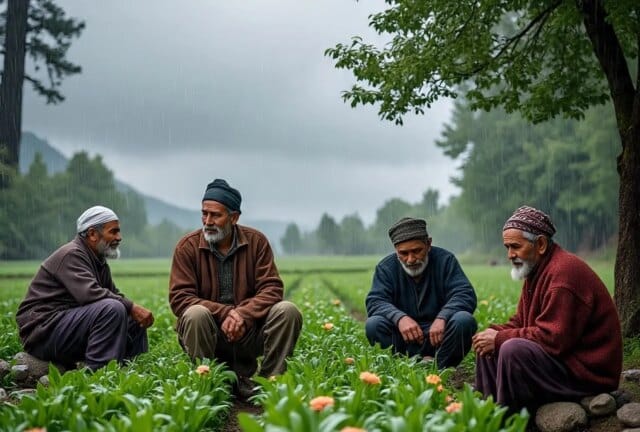Srinagar, Jul 23: The Government of India has acknowledged that farmers across several states, including Jammu and Kashmir, have been compelled to sell their crops at a loss, despite increases in Minimum Support Prices (MSP) and efforts to expand crop insurance and infrastructure.
Responding to a Starred Question in the ongoing monsoon session in Lok Sabha, Union Agriculture and Farmers Welfare Minister Shivraj Singh Chouhan said that while MSPs for 22 mandated crops have been significantly raised since 2018-19, procurement remains limited.
“The MSP regime ensures a return of at least 50% over the weighted average cost of production,” the minister said in a written reply. “However, farmers may choose to sell in the open market or to government agencies, depending on what is more beneficial.” Chouhan cited data showing procurement of 1,175 lakh metric tonnes of crops valued at Rs 3.33 lakh crore in 2024–25 (up to June 30).
However, he acknowledged gaps in implementation, particularly in states like Haryana, Jharkhand, and Jammu and Kashmir.
To address income disparities, the minister highlighted several central schemes such as the Pradhan Mantri Fasal Bima Yojana (PMFBY) for crop insurance, the Agriculture Infrastructure Fund (AIF) to strengthen post-harvest systems, and support for Farmer Producer Organisations (FPOs) to improve farmers’ bargaining power.
Digital platforms like the National Agriculture Market (e-NAM), and integrations with commerce networks like ONDC and GeM, are also being promoted to curb distress sales.
A committee was formed in July 2022 to suggest reforms for a more scientific and autonomous MSP mechanism and to modernize agricultural marketing systems.
For regions like Jammu and Kashmir, the government is also promoting organic farming under the Paramparagat Krishi Vikas Yojana (PKVY), with cluster-based initiatives in hilly districts.
Suhail Bukhari, an officer in the Jammu and Kashmir Agriculture Department, said that poor market access, especially in Kashmir, severely limits farmers’ income potential.
“Though Kashmir can supply vegetables during lean periods, connectivity to national and international markets is a major constraint,” he said, citing the lack of proper road and rail links for transportation of yield and absence of terminal markets or ports.
Bukhari also said that fragmented landholdings and the lack of cooperative farming models are major barriers. “Farming here is largely done on small plots. Cooperative or collective farming could help, but it’s missing,” he said.
While the government has introduced the Holistic Agriculture Development Programme (HADP) to address some of these issues, Bukhari said much more needs to be done. “Strengthening FPOs can make a real difference by helping farmers access better markets and prices,” he added.
Despite government initiatives, the implementation of MSP procurement and related schemes in Jammu and Kashmir remains uneven.
Small landholdings, limited infrastructure, and weak post-harvest systems continue to expose farmers to volatile market conditions and low returns.








